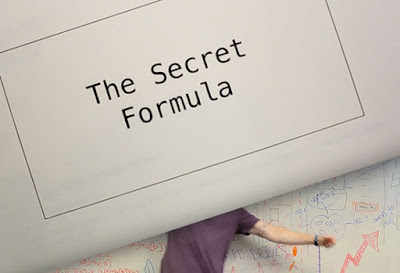Writing a Blockbuster - the Formula

A student asked me this week if I knew of any successful writers that 'showed' how they took their first drafts and made them into the highly polished versions you see in the bookstores. I could only think of a couple. Stephen King in On Writing includes a rough draft of a paragraph and gives the reader an indication of how he goes about editing it to make it tighter. Cutting out words, changing phrases etc, generally improving the work. All very illuminating. (Incidentally, people were so intrigued by Stephen's spontaneous example that he felt forced to turn it into a full blown story which became 1408 !) Anyway, the only other person I could think of was Ken Follett. I remembered that I'd read a book once by Al Zuckerman which included various drafts of Ken's work as he edited his manuscripts to a publishable standard. So - I took a look at Ken's website. On that I found a gem: a masterclass on writing a bestseller. And this is from a man who...




